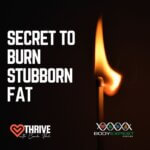Organic Vs Non-Organic: Part 2
Animal Products
For years we’ve been told red meat is bad for us. Is this really the case? Red meat has been proclaimed as unhealthy and a cause of cancer for years. The simple fact is that animal products are only as healthy as the animal they came from.
In the 1980’s Dr Michael Pariza, of the University of Wisconsin, was looking to prove or disprove the theory that charcoaled meat could cause cancer in humans. What he actually discovered was that there was some substance in red meat that was slowing the growth of tumors that he was trying to raise, which was the exact opposite he had set out to find. One year later he discovered the compound Conjugated Linoleic Acid (CLA).
CLA is probably one of the best foods you can consume to slow down and fight cancer, help against diabetes, and is great for the circulatory system. Studies conducted in both Finland and France found that CLA protected women from breast cancer. In fact one French study discovered that women with the most CLA had a staggering 74% lower risk of breast cancer than the women with the least CLA.
The best source of CLA is obtained from Grass-Fed (100% pasture raised) beef, lamb, bison and Grass-Fed butter and cheese. The below diagram illustrates the difference in quality of product between Grain-Fed and Grass-Fed animals.
The confusion regarding the health accusations against red meat is really the confusion between Grass-Fed and Grain-Fed. The myth that red meat is ‘bad’ for us is a study of Grain-Fed animals – a reflection of the food industry “commodity product”.
Why feed animals grains when it’s not their natural food choice?
Simply because Grass-Fed (naturally fed) livestock, chickens and fish take at least twice as long to reach their finish weight… limiting profit margins.
History of Grain-Fed:
After World War Two there was a surplus of nitrogen in the U.S. from making weapons and bombs. The War Department contacted the Agriculture Department for a solution and they decided that the excess nitrogen could be put out on the cropland. From 1946 – 1950 the corn yield (corn is classified as a grain) in the U.S. literally doubled and by 1951-52 farmers were complaining about low prices and the fact they had too much corn. The department of Agriculture then had to decide what to do with all the excess grain. They concluded that a cow could consume about 20 – 25 pounds of corn per day (far more than chickens and pigs). Thus, the birth of corn/grain-fed livestock and a number of corn/grain based products and substances (like high fructose corn syrup) in our diets.
So, the fact that the department of agriculture needed to do something with all that corn and animals (and humans) got fat fast eating it was the perfect solution.
However, this ‘fast-tracked’ profit comes at a cost. Grain-Fed animals are more susceptible to illness due to their diet and living conditions. Hence, they receive large doses of antibiotics and sometimes hormones to fight disease and further accelerate their growth rate. Grazing animals operate a stomach at PH of 7 (neutral) where as, an animal with an increased starch or heavy grain diet will have a stomach PH of 4 to 4.5 (very acidic). The PH level is important, as the bacteria that ferments in the first stomach (a cow has 4 stomachs) at PH 7 all die off at about PH 5. So you have a completely different family of bacteria that do the fermentation. This acidic environment of the Grain-Fed animals digestive tract leads to an increased population of E. coli and also makes them more acid resistant. When we consume Grain-Fed meat, our digestive system is not able to cleanse out these acid resistant bacteria and hence become ill. Grass-Fed beef, on the other hand, does not cause alteration of the E. coli bacteria and is therefore healthy.
Along with this Grass-Fed beef has higher Omega 3 fatty acids and higher vitamin E content. Vitamin E is a powerful antioxidant that protects your body’s cells from free radicals and thus delays ageing. It also reduces the incidence of various chronic diseases including heart diseases, diabetes and cataracts.
What about organic meat?
Organic livestock has its regular benefits of no pesticide and fertilizer contamination. It does not contain artificial substances such as hormones, GMO’s and antibiotics. However, organic livestock can still be Grain-Fed and have all the issues previously mentioned.
So in a nut shell the Grass-Fed animals is dramatically healthier from the standpoint of human health. Organic is a bonus.
Where does this leave us when living in Asia?
Grass-Fed livestock is hard to find in Asia. I recommend developing a relationship with the people who supply your food. Learn how your food is grown and treated so you can make an informed decision on whether you want to include the produce in your nutritional plan. Sometimes you have to choose the best of bad options and balance your diet with nutrients that promote detoxification of harmful substances or simply go without and choose alternative products.






